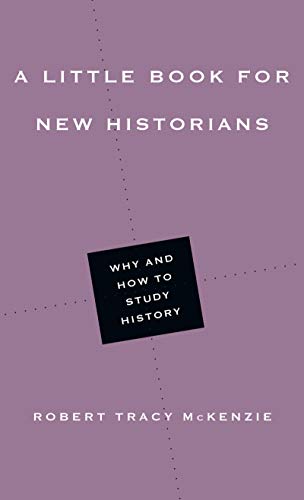
Is there a specifically Christian case for the study of history? Should faith in the God of the Bible and the understandings of orthodox Christianity persuade us of the importance of the past? I am convinced that the answer is a resounding “Yes!” In this post and the next one, I’ll share six reasons why I think so.
Is there a specifically Christian case for the study of history? Should faith in the God of the Bible and the understandings of orthodox Christianity persuade us of the importance of the past? I am convinced that the answer is a resounding “Yes!” In this post and the next one, I’ll share six reasons why I think so.
To begin with, if “human existence is historical existence,” as the late John Lekacs observed, our belief in the Lord of creation convinces us that this is not by happenstance but by design. God created us to be historical beings. It is by design that we necessarily live in time. It is by design that “we live forward, but we can only think backward.” It is by design that we cannot extricate ourselves from the power and presence of the past in our lives. It may not be this way in eternity—if Sheldon Vanauken is right, “timelessness” may be an attribute of heaven—but for now this is part of what it means to be human. When we develop historical consciousness, we’re actually training our minds to a greater self-awareness of how God has made us.
Second, history is absolutely foundational to Christianity. In one sense, this should not surprise us. Given how God has made us, how could it be otherwise? But it would be a huge mistake to pass lightly over history’s indispensable role in the faith we profess. In the words of Georges Florovsky, a 20th-century Russian Orthodox priest and historian, “Christianity is basically a vigorous appeal to history, a witness of faith to certain particular events in the past.”
If you doubt him, look up the Apostles’ Creed and note just how many of its assertions are historical claims. Christ “was conceived” by the Spirit, “was born” of the virgin, “suffered” under Pilate, “was crucified, died, and was buried,” “descended to hell,” “rose again from the dead,” “ascended to heaven.” Do you see what the verbs have in common? The past tense, Margaret Bendroth reminds us, is “essential to our language of faith.” This is not to minimize the importance of a living faith in the present—we all long to see the ongoing work of God in our lives—but to emphasize that the bedrock of the gospel is God’s already completed work in Christ Jesus. As Stanley Hauerwas and William Willimon observe, our “faith begins, not in discovery, but in remembrance.”
Third, if we have accepted faith in Christ, we are members of a community of faith that binds living and dead, present and past. Not that we typically think of it that way. Occasionally a missionary on furlough will remind us that the church is truly transnational, and that the saints in eternity will encompass believers from “every tribe and tongue and people and nation” (Revelation 5:9). But how many of us stop to think that the body of Christ transcends time as well as space? To paraphrase G. K. Chesterton, when we gather around the throne of God to proclaim “worthy is the Lamb,” we’ll join a chorus that “bridges the abyss of ages” as well as the “chasms of class,” race, and ethnicity.
This is another way of calling attention to the Christian doctrine of “the communion of saints.” That’s a phrase in the Apostles’ Creed we rarely pay much attention to, and I’m in no position to tell you exactly what it means. The hymn “The Church’s One Foundation” sings of “mystic sweet communion with those whose race is won,” and I agree with the hymn writer that there is an irreducible element of mystery in the concept. The nineteenth-century theologian Philip Schaff equated it to “the fellowship of all true believers living and departed.” Hauerwas and Willimon underscore the link between the doctrine and the importance of history: “The dead are not dead insofar as we are bound together in the communion of saints, living and dead,” they write. “Therefore our conversation cannot be limited to those who now live.”
Should Christians value the study of the past? How could we ever think otherwise! God has created us as historical beings, and if we have faith in Christ, then we necessarily testify to the truth of a historical faith and have been engrafted into a historical church. But that’s not all . . .
(Adapted from A Little Book for New Historians: Why and How to Study History)